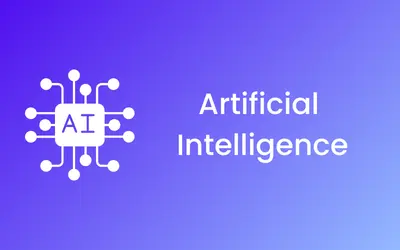Singapore is known for its innovative and highly advanced technology sector, making it an excellent destination for pursuing an artificial intelligence (AI) course. Artificial intelligence is an interdisciplinary field that involves creating intelligent machines that can complete tasks that typically require human intelligence, such as recognizing patterns, making decisions, and solving problems. If you are interested in pursuing this exciting field, Singapore offers a variety of AI courses, ranging from short-term training programs to comprehensive degrees, that cater to different levels of expertise and background knowledge. One of the most popular AI courses in Singapore is the Master of Science in Artificial Intelligence (MSAI) program at the National University of Singapore (NUS). The program aims to equip students with theoretical knowledge and practical skills in building and deploying intelligent systems. The curriculum covers a wide range of topics, including machine learning, natural language processing, robotics, and computer vision. The program also provides opportunities for students to participate in research projects that focus on developing advanced AI technologies. Another notable AI course provider is the Singapore Management University (SMU), which offers a Master of IT in Business (Analytics) program. The degree program combines traditional business management skills with advanced analytics and AI techniques. Students learn how to use data analytics tools and develop AI-based business solutions that can optimize company operations and increase profits. For those who want to enter the AI field but have limited technical background knowledge, a basic introduction course in AI can be a good starting point. The Singapore University of Social Sciences (SUSS) offers a short-term program called AI for Everyone, which provides an overview of AI technologies and its applications in different industries. Participants will learn the fundamental concepts of AI, such as machine learning, deep learning, and neural networks, and explore how these technologies can benefit businesses and society. Another option for beginners is the AI for Everyone course offered by the Infocomm Media Development Authority (IMDA). Participants in this program gain a broad understanding of AI principles, applications, and ethical considerations. They also learn about the potential risks and benefits of AI, as well as its societal and economic impact. Singapore is also home to various private training institutions that offer AI courses at different levels and in various formats, such as online, classroom-based, and blended learning. One such institution is the Institute of Systems Science (ISS), a research institute under the NUS that provides professional training in IT and software development. ISS offers a range of AI-related courses, including machine learning, deep learning, and AI applications in finance and healthcare. The demand for AI professionals is growing rapidly, and taking an AI course in Singapore can offer a great start in entering this field. With its vibrant technology ecosystem, world-class universities, and advanced research facilities, Singapore is an excellent choice for anyone seeking to deepen their knowledge and skills in artificial intelligence.

₹60,000


Watch how students, freshers, and professionals transformed their careers with Skillfloor's Artificial Intelligence Courses Reviews
Hurry Up!
Limited seats call us now for amazing discounts on Artificial Intelligence Courses course



Skillfloor is a Government-Recognized Skill Development Institute under Startup India (DPIIT), offering career-focused certification programs in Analytics, Artificial Intelligence (AI), Data Science, Digital Marketing, SEO, and related domains. As one of India's largest training institutes, our courses emphasize hands-on projects, expert mentorship, and skills aligned with real hiring needs. With flexible learning options - online, offline, and hybrid, plus 100% scholarships for selective students, we make quality, job-ready education accessible.
Explore the program that aligns with your goals and take the next step with Skillfloor.



- Overview of AI and ML
- Types of Machine Learning
- Data Collection and Preprocessing
- Basic Statistics for AI
- Python Essentials for AI
- Regression Analysis
- Classification Algorithms
- Ensemble Methods
- Model Evaluation Techniques
- Feature Engineering and Selection
- Introduction to Clustering
- Dimensionality Reduction Techniques
- Association Rule Learning
- Anomaly Detection
- Self-Organizing Maps (SOM)
- Introduction to Neural Networks
- Deep Neural Networks (DNNs)
- Convolutional Neural Networks (CNNs)
- Recurrent Neural Networks (RNNs)
- Autoencoders and Generative Models
- Introduction to NLP and Text Processing
- Text Classification and Sentiment Analysis
- Advanced NLP Techniques
- Deep Learning in NLP
- Speech Recognition and Processing
- Introduction to Computer Vision
- Image Classification with CNNs
- Object Detection Techniques
- Image Segmentation
- Video Processing and Analysis
- Introduction to Reinforcement Learning
- Markov Decision Processes (MDP)
- Q-Learning and SARSA
- Deep Q Networks (DQN)
- Applications of Reinforcement Learning
- Ethical Implications of AI
- Fairness and Bias in AI
- Privacy and Security Concerns
- Explainability in AI
- Legal and Regulatory Aspects
- AI in Healthcare
- AI in Finance
- AI in Manufacturing
- AI in Retail
- AI in Autonomous Systems
- Defining and Planning a Capstone Project
- Data Preparation for Projects
- Model Building and Testing
- Model Deployment Techniques
- Project Presentation and Evaluation